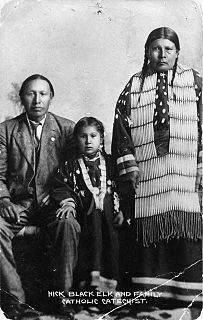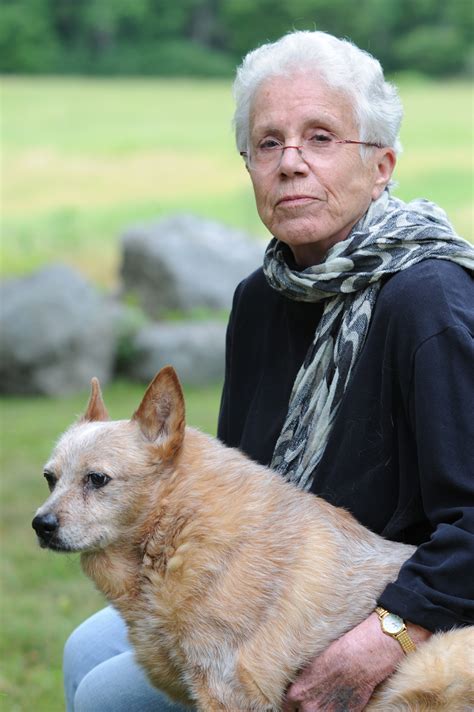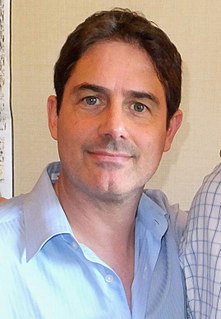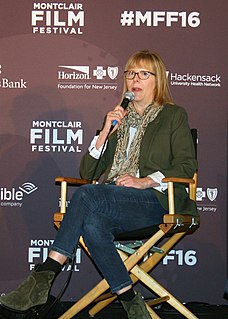A Quote by Gordon Quinn
'Hoop Dreams' brought us back to our roots in veríté filmmaking. What we saw in the powerful emotional scenes within it - at nearly three hours long and with no star power - was an outreach to a different and more important audiences. There were the similarly involved folks who saw it that were part of the struggle, but there was also a new audience that weren't empathetic or sympathetic to the people we were portraying. They would never watch a film about inner city families, but they watched 'Hoop Dreams.'
Quote Topics
About
Also
Audience
Audiences
Back
Brought
City
Different
Dreams
Emotional
Empathetic
Families
Film
Filmmaking
Folks
Hoop
Hours
Important
Inner
Inner City
Involved
Long
More
Nearly
Never
New
Our
Outreach
Part
People
Portraying
Power
Powerful
Roots
Saw
Scenes
Similarly
Star
Struggle
Sympathetic
Three
Us
Watch
Watched
Were
Within
Would
Related Quotes
What makes 'Hoop Dreams' such a powerful film, is that it carries a message that maybe we can do something about our problems in America, reflected in the resiliency and strength of those families that we portrayed. The film was where we really saw the characters that we care about, interwoven with a analysis that is trying to help the audience understand what is happening in these people's lives. And in what is happening, there is an understanding of the larger power relationships in the world.
Everything an Indian does is in a circle, and that is because the power of the world always works in circles, and everything tries to be round. In the old days when we were a strong and happy people, all our power came to us from the sacred hoop of the nation, and so long as the hoop was unbroken the people flourished.
None of our films look alike, we are very dialectical in our approach to each one, and 'Hoop Dreams' was no exception. That's what I love about documentary filmmaking, we never know where the story is going, we don't know what is going to happen next, and we're inside a culture of people that you have to figure out in many ways. It's a relationship between what you thought might have been the story, and what happens in the 'field.' Out of that comes the story, which was exactly what happened with 'Hoop Dreams.'
I was standing on the highest mountain of them all, and round about beneath me was the whole hoop of the world. And while I stood there I saw more than I can tell and I understood more than I saw; for I was seeing in a sacred manner the shapes of all things in the spirit, and the shape of all shapes as they must live together like one being. And I saw that the sacred hoop of my people was one of many hoops that made one circle, wide as daylight and as starlight, and in the center grew one mighty flowering tree to shelter all children of one mother and one father. And I saw that it was holy.
The newspaper stories were like dreams to us, bad dreams dreamt by others. How awful, we would say, and they were, but they were awful without being believable. They were too melodramatic, they had a dimension that was not the dimension of our lives. We were the people who were not in the papers. We lived in the blank white spaces at the edges of print. It gave us more freedom. We lived in the gaps between the stories.
I saw that animals were important. I saw that plants were even more important. I was also to learn that compared to many of the other species, we weren't important at all except for the damage we do. We do not rule the natural world, despite our conspicuous position in it. On the contrary, it is our lifeline, and we do well to try to understand its rules.
Israel is imperfect, of course it is - a far cry from the monumental dreams of the founding fathers. One of the reasons is that their dreams were unrealistic. They were bigger than life. These were messianic dreams, dreams about total redemption for the Jews, for the world. Such dreams do not come true, not in their entirety.
'Hoop Dreams'was an unbelievable struggle. We were trying to raise money in the midst of shooting it, and just explaining to people took a lot of effort. I remember talking to someone who should have gotten it, this person was in Public Television, and they didn't think we had a story, until 'maybe something bad happens to one of the boys.' Besides being somewhat heartless, it was also wrong.
Israel is a fulfillment, and as a fulfillment, it is flawed. Dreams fulfilled are imperfect. And, Israel is imperfect, of course it is - a far cry from the monumental dreams of the founding fathers. One of the reasons is that their dreams were unrealistic. They were bigger than life. These were messianic dreams, dreams about total redemption for the Jews, for the world. Such dreams do not come true, not in their entirety.
I always tell our community that we should attract the people Jesus attracted and frustrate the people Jesus frustrated. It's certainly never our goal to frustrate, but it is worth noting that the people who were constantly agitated were the self-righteous, religious elite, the rich, and the powerful. But the people who were fascinated by him, by his love and grace, were folks who were already wounded and ostracized — folks who didn't have much to lose, who already knew full well that they were broken and needed a Savior.
































